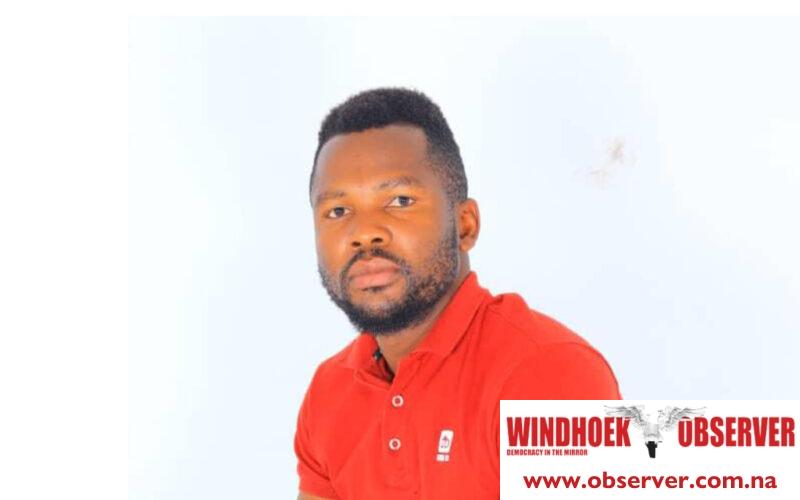Sakaria Johannes
In Namibia, young people make up most of the population. With their numbers, energy, and potential, they have the power to shape the future of the nation. Yet, a large portion of the youth remains disconnected from politics, viewing it as irrelevant or distant. This disengagement poses a serious threat not only to their future but also to Namibia’s democratic system and its development.
What is Politics?
Aristotle, often referred to as the “Father of Political Science,” defined politics as the process by which people determine how to live together in a community and achieve the common good. In his work Politics, he states, “Man is by nature a political animal,” emphasizing that humans naturally form communities and organize themselves politically to pursue a good life. For Aristotle, politics was about creating a just society where citizens could live fulfilling lives, and it was essential to achieving human flourishing.
Ignoring politics, therefore, does not make one immune to its effects. Every law passed and every policy enforced impacts the lives of young Namibians, shaping their opportunities and prospects. Despite this reality, many young people remain detached from the political process, which undermines their ability to shape the nation they will one day lead.
The Danger of Not Participating in Politics
In Namibia, Article 17 of the Constitution protects every citizen’s right to participate in political activities, including the right to vote, form political parties, and run for office. This protection ensures that no citizen, particularly young people, should feel excluded or intimidated by the political process. Yet too many young Namibians fail to exercise these rights, leaving their future in the hands of others.
When young people ignore politics, they surrender their voice in decisions that directly affect them. This allows a small elite to make decisions without considering the needs and aspirations of the youth. Political disengagement also leaves room for corruption and poor governance to thrive, as fewer people hold leaders accountable for their actions.
Why Young Namibians Must Engage in Politics Today
Namibian history offers a powerful example of how young people can carry forward a national agenda and enact change. From the 1960s until Namibia’s independence in 1990, young people were at the forefront of the liberation struggle. The formation of SWAPO (South West Africa People’s Organization) was significantly fuelled by the youth, who were determined to resist colonialism and apartheid. Student leaders and young fighters in the People’s Liberation Army of Namibia (PLAN). This chapter of history proves that young people, when united and politically active, have the power to challenge systems and bring about real change.
The youth of today must draw inspiration from those who fought in the liberation struggle. Just as young people carried the fight for freedom in the past, today’s generation can lead the next wave of political and social transformation in Namibia. The challenges may differ ,ranging from unemployment and education reform to climate change and economic inequality—but the need for youthful energy, ideas, and participation remains as crucial as ever.
Through active political engagement, young Namibians can push forward a youth-driven agenda that addresses their unique needs and aspirations. They can challenge the status quo, demand accountability from leaders, and shape policies that prioritize their future. Whether through voting, forming or joining political parties, or engaging in civic activism, young people must take ownership of the political space.
Political participation is not limited to casting a vote every five years. It involves being actively engaged in discussions about the country’s direction, understanding the issues at hand, and demanding better governance. Youth-driven movements can advocate for policies that prioritize education, employment, health, and social justice. By organizing and using the power of collective action, young Namibians can ensure that their voices are heard and their needs addressed.
The Way Forward for Namibian Youth
Young people must break the cycle of ignorance and indifference toward politics. They must educate themselves about Namibia’s political landscape, their rights, and the responsibilities they carry as citizens. This is how they can continue the legacy of the youth who fought for liberation and build a nation that works for all Namibians.
By embracing active political participation, young people can challenge the systems that perpetuate inequality and stagnation. They can introduce new ideas, drive meaningful reforms, and ensure that the future of Namibia is shaped by the very people who will live in it.
In conclusion, young Namibians have the power to shape the future of their country, but this power will only be realized if they engage in politics. The dangers of political disengagement are too great to ignore. Just as the youth of the past fought for independence, today’s youth must rise to the challenge and ensure that their generation is not left behind. Politics is part of our everyday lives, and young people must actively participate to secure a brighter future for Namibia.
Sakaria Johannes, is a Political studies and History graduate from the University of Namibia. He can be reached at sackyuutsi@gmail.com




